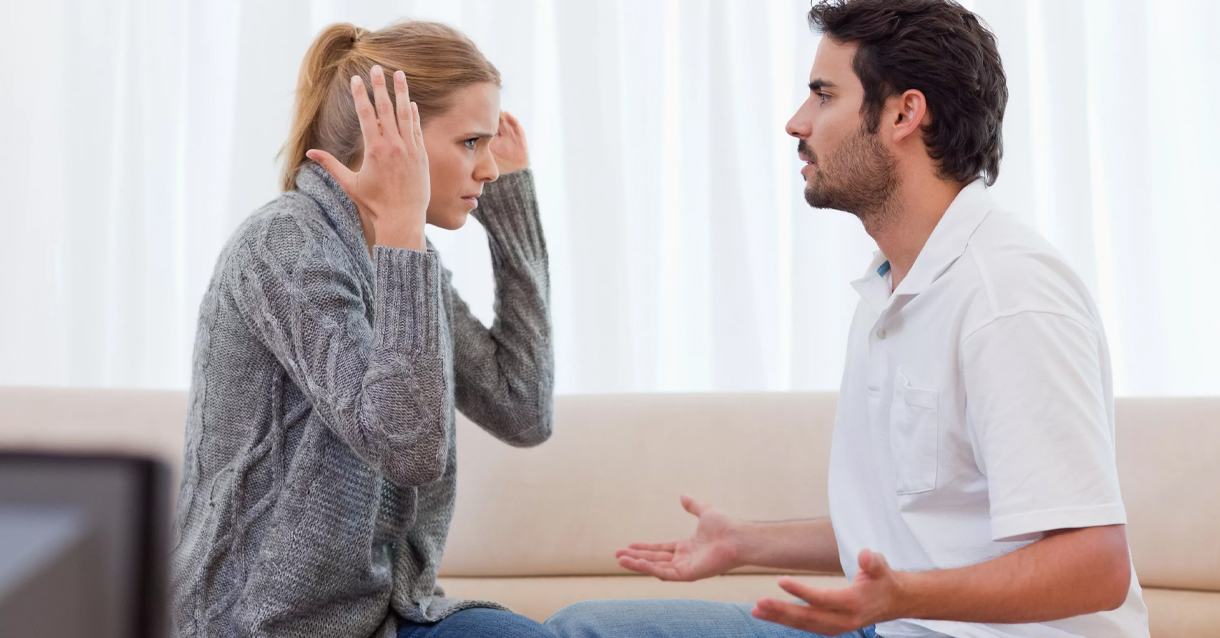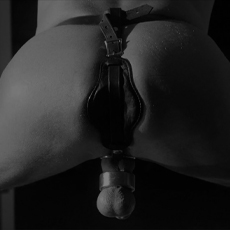
Relationships are a journey filled with both joyous moments and inevitable conflicts. These conflicts, however, don’t signify a failing relationship but rather an opportunity for growth. Couples therapy has emerged as a crucial tool for partners to navigate their issues, fostering stronger, more resilient bonds. In this comprehensive guide, we'll delve into the importance of couples therapy exercises and how they can transform your relationship.
The Prevalence of Conflict in Relationships
Every relationship encounters conflict. Whether it's due to miscommunication, differing values, or external stressors, conflicts are natural and, to an extent, healthy. They indicate engagement and a desire to resolve differences. However, unresolved conflicts can lead to significant distress, making couples therapy an invaluable resource.
Understanding Couples Therapy
Basic Explanation of Couples Therapy
Couples therapy is a form of psychotherapy aimed at helping partners improve their relationship. A therapist works with couples to address and resolve issues, enhance communication, and foster a deeper understanding between partners. This process often involves structured sessions where both partners engage in discussions and exercises tailored to their specific needs and challenges.
The Role and Importance of Therapists
Therapists act as neutral mediators, providing a safe space for partners to express their feelings and concerns. They guide couples through exercises and discussions designed to resolve conflict and build stronger connections. The therapist’s role is crucial in identifying underlying issues, teaching effective communication techniques, and offering impartial insights that help couples see their relationship dynamics more clearly.

The Benefits of Couples Therapy
Improving Communication Skills
One of the primary benefits of couples therapy is improved communication. Therapists teach techniques such as active listening and reflective communication, which help partners express themselves more clearly and understand each other better. Improved communication skills can lead to fewer misunderstandings, more meaningful conversations, and a greater sense of connection between partners.
Learning Conflict Resolution Strategies
Therapists introduce conflict resolution strategies that enable couples to handle disagreements constructively. These strategies often involve compromise, empathy, and effective negotiation skills. By learning and practicing these techniques, couples can manage conflicts in a way that strengthens their relationship rather than weakening it.
Building Deeper Understanding and Connection
Couples therapy fosters a deeper understanding and connection by encouraging partners to explore their emotions, needs, and desires. This increased empathy and intimacy strengthen the relationship’s foundation. As partners gain a better understanding of each other’s perspectives and experiences, they can develop a more compassionate and supportive relationship.
Challenges and Potential Drawbacks of Couples Therapy
Emotional Discomfort
Discussing deep-seated issues can be emotionally uncomfortable. Couples may initially feel vulnerable or defensive, which can be challenging to navigate. However, this discomfort is often a necessary part of the healing process, leading to greater openness and honesty in the relationship.
Frustration During the Therapeutic Process
The therapeutic process can sometimes be slow, leading to frustration. Progress may seem incremental, and couples need patience and perseverance. It’s important to recognize that lasting change takes time and that the benefits of therapy often become more apparent as the process unfolds.
Necessity of Active Participation and Commitment from Both Partners
For therapy to be effective, both partners must be actively involved and committed. Lack of engagement from either partner can hinder progress. Successful couples therapy requires mutual effort and a willingness to work together towards common goals.
Situations Suitable for Couples Therapy
Addressing Specific Issues
Couples therapy is particularly beneficial for addressing specific issues such as infidelity, substance abuse, and infertility. Therapists provide targeted strategies to deal with these challenges, helping couples navigate complex emotions and rebuild trust.
Improving Communication and Intimacy in Relationships
Even without specific issues, couples therapy can enhance overall communication and intimacy, helping partners connect on a deeper level. This proactive approach can prevent potential problems and ensure that the relationship remains strong and fulfilling.
Coping with Life Stresses and Changes
Life changes such as moving, job transitions, or having children can strain relationships. Couples therapy helps partners navigate these changes together, providing tools to manage stress and maintain a healthy relationship amidst life's inevitable fluctuations.
Couples Therapy Techniques

Reflective Listening
Reflective listening involves partners repeating back what they hear to ensure understanding and validation. This technique minimizes misunderstandings and fosters empathy. It encourages partners to truly listen to each other and validate each other’s feelings and perspectives.
Emotionally Focused Therapy (EFT)
EFT focuses on identifying and transforming negative emotional responses within the relationship. It aims to create secure emotional bonds and improve emotional regulation. By addressing and healing emotional wounds, EFT helps couples develop a stronger, more resilient connection.
Narrative Therapy
Narrative therapy helps couples reframe their issues by viewing them as external problems rather than internal flaws. This approach encourages a collaborative and non-blaming perspective. It empowers couples to rewrite their relationship stories in a more positive and constructive way.
The Gottman Method
The Gottman Method emphasizes building a solid friendship, managing conflict constructively, and creating shared meaning. It incorporates various exercises to strengthen the relationship. This method is based on extensive research and offers practical tools to enhance relationship satisfaction.
Imago Relationship Therapy
Imago therapy explores how childhood experiences influence adult relationships. It helps partners understand their triggers and develop healthier interactions. By addressing deep-rooted patterns, Imago therapy fosters greater empathy and connection.
Solution-Focused Therapy
Solution-focused therapy concentrates on identifying and enhancing existing strengths and solutions rather than dwelling on problems. It promotes a positive and forward-looking approach. This technique helps couples focus on their goals and the steps needed to achieve them.
Couples Therapy Exercises and Activities
Creating a Vision Board
A vision board is a creative exercise where couples visualize and collage their future goals and dreams. This activity promotes shared aspirations and mutual support. By aligning their visions, couples can work together towards common objectives and strengthen their partnership.
Engaging in Deep-Topic Conversations
Engaging in deep-topic conversations helps partners explore significant aspects of their relationship, fostering deeper connections and understanding. These conversations encourage vulnerability and openness, leading to a more intimate and meaningful relationship.
Expressing Gratitude Regularly
Regularly expressing gratitude helps couples appreciate each other’s efforts and contributions, enhancing positivity and mutual respect. This simple yet powerful practice can significantly improve relationship satisfaction and emotional well-being.
Identifying and Honoring Love Languages
Understanding and addressing each other's love languages—such as words of affirmation, acts of service, and physical touch—strengthens emotional bonds. By honoring each other’s preferred ways of giving and receiving love, couples can enhance their emotional connection.
Scheduling Important Conversations
Scheduling dedicated time for important conversations ensures that partners address issues thoughtfully and without distractions. This practice helps maintain a focus on relationship health and prevents problems from being ignored or overlooked.
Practicing Couples Yoga
Couples yoga promotes physical closeness and synchronization. It encourages partners to support and balance each other, enhancing trust and intimacy. This physical activity also provides a fun and relaxing way to connect and de-stress together.
The Six-Second Kiss Exercise
The six-second kiss is a simple yet effective exercise to foster intimacy. Holding a kiss for at least six seconds creates a moment of connection and affection. This brief but meaningful gesture can help maintain and strengthen emotional and physical bonds.
Other Beneficial Activities and Exercises
Other beneficial activities include shared hobbies, date nights, and collaborative projects. These activities reinforce partnership and teamwork, providing opportunities for fun and connection outside of daily routines.
Online Couples Therapy Platforms
Importance of Choosing the Right Platform
Choosing the right online therapy platform is crucial. It should offer qualified therapists, user-friendly interfaces, and flexible scheduling. The right platform ensures that couples receive the support they need in a convenient and accessible manner.
Recommended Online Therapy Platforms
Some recommended platforms include BetterHelp, Talkspace, and Regain. These platforms provide a range of therapy options tailored to couples. They offer the flexibility to engage in therapy from home, making it easier to fit into busy schedules.
Advantages and Convenience of Online Therapy
Online therapy offers convenience, flexibility, and accessibility, making it easier for couples to seek help from the comfort of their homes. It eliminates barriers such as travel time and geographical constraints, allowing more couples to access professional support.
Finding the Right Couples Therapist

Considerations When Choosing a Therapist
When choosing a therapist, consider their qualifications, experience, and approach to therapy. Compatibility with the therapist is essential for effective treatment. It’s important to find a therapist who understands your unique needs and relationship dynamics.
Utilizing Online Resources and Recommendations
Online resources and recommendations from friends or family can help find a suitable therapist. Reviews and testimonials offer insights into the therapist’s effectiveness. Utilizing these resources can streamline the search process and ensure a good match.
Ensuring Professionalism and Suitability of the Therapist
Ensure the therapist is licensed and adheres to professional standards. It’s also important to feel comfortable and understood by the therapist. A good therapist will create a safe and supportive environment, facilitating honest and productive sessions.
Conclusion
Couples therapy offers immense value by enhancing communication, resolving conflicts, and fostering deeper connections. It equips partners with tools to navigate their relationship more effectively. Investing in therapy can lead to long-term benefits and a stronger, healthier relationship.
It's essential to manage expectations. Progress may be gradual, and not every session will yield immediate results. Patience and commitment are key. Understanding that therapy is a process can help couples stay motivated and focused on their goals.
Seeking professional help is a proactive step toward improving relationships. Couples therapy provides a structured and supportive environment to address and overcome challenges together. Don’t hesitate to seek help; investing in your relationship’s health is a worthwhile endeavor.
Incorporating couples therapy exercises into your relationship can lead to significant improvements in communication, understanding, and intimacy. Whether you’re facing specific issues or simply looking to strengthen your bond, these exercises offer practical and effective solutions for a healthier, happier relationship.












 luvsenz
luvsenz  ssxdesire
ssxdesire  eesensual
eesensual  ssdelight
ssdelight  intilust
intilust  eeromance
eeromance  sintimatee
sintimatee  spassionn
spassionn  lustssx
lustssx  ssecstasy
ssecstasy  lesaria
lesaria  femles
femles  vibher
vibher  pleasurax
pleasurax  ecstasyedge
ecstasyedge  eroswave
eroswave  desiredock
desiredock  intimatenest
intimatenest  eroblend
eroblend  erofusion
erofusion  intrnest
intrnest  desirejunction
desirejunction  seductionnook
seductionnook  heroxt
heroxt  egoxt
egoxt  tactxl
tactxl  exxlust
exxlust  lustrefuge
lustrefuge  spleasurey
spleasurey  ettempt
ettempt  sensujoy
sensujoy  femmeflir
femmeflir  evetoux
evetoux 
 vavaxl
vavaxl  alluset
alluset  luvtempt
luvtempt  eroglee
eroglee 
 thrilltop
thrilltop  luvmale
luvmale  gayvib
gayvib 
 domcockring
domcockring 
 blissbondage
blissbondage  tribetether
tribetether  pridepunish
pridepunish  rainbowrough
rainbowrough  spectrumslave
spectrumslave 
 furyplug
furyplug 
 edgegaze
edgegaze 

 gayvibsextoy
gayvibsextoy